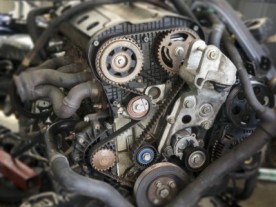What Is Making My Car Lose Power After I Fixed an Ignition Coil Problem?
If you have recently experienced a loss of power in your car, especially after fixing an ignition coil problem, you may be wondering what's causing the issue and how to solve it. While there can be many reasons behind a loss of power, some common ones related to ignition coils are discussed below.

1. Spark plug problems: A bad or fouled spark plug can cause weak or intermittent sparks, which can lead to a misfire, loss of power, and poor fuel economy. Even if you replaced the faulty ignition coil, the old spark plugs may not be able to handle the increased voltage or heat generated by the new coil. Therefore, it's recommended to replace all the spark plugs at the same time as the ignition coil, following the manufacturer's specifications for the type and gap.
2. Fuel system issues: A clogged or dirty fuel filter, fuel pump, or fuel injector can restrict the flow of gasoline to the engine, causing it to run lean or rich, depending on the situation. This can result in decreased power, rough idling, stalling, or even engine damage. If you suspect a fuel system problem, you should have it diagnosed and repaired by a qualified mechanic as soon as possible.
3. Electrical faults: An ignition coil problem can sometimes affect other electrical components in the car, such as the battery, alternator, or starter motor. For example, a weak or dead battery can't provide enough power to start the engine or run the accessories, leading to a loss of power. Similarly, a faulty alternator can't recharge the battery or supply the required voltage to the ignition coil, causing the engine to run poorly. A damaged starter motor may also struggle to turn over the engine, resulting in slow cranking or no start.
4. Other engine issues: Finally, a loss of power can be caused by other engine problems that are not directly related to the ignition coil, such as a malfunctioning catalytic converter, a worn-out timing belt or chain, a leaky intake manifold, or a damaged valve train. These issues can affect the air/fuel mixture, compression, or exhaust flow, resulting in poor performance, reduced efficiency, and increased emissions.
To diagnose and fix a loss of power issue, you may need to perform some tests or inspections on your car, depending on the symptoms and possible causes. For example, you can use a diagnostic scanner or OBD-II reader to check for any trouble codes stored in the car's computer. You can also visually inspect the spark plugs, fuel filter, and wiring for any signs of wear, corrosion, or damage. Additionally, you may want to test the fuel pressure, ignition timing, compression, and vacuum readings to get a better picture of the engine's health.
Once you have identified the root cause of the loss of power, you can take appropriate measures to resolve it. This may involve replacing or repairing the affected parts, cleaning or flushing the fuel system, adjusting the timing or idle speed, or performing a tune-up or overhaul. You may also want to follow a regular maintenance schedule to prevent future issues and prolong the life of your car.
In conclusion, while fixing an ignition coil problem can improve the engine's performance, it's not always a guarantee that your car will run smoothly. A loss of power can have many underlying causes, ranging from simple to complex, and requires careful investigation and diagnosis. If you are unsure about how to proceed or lack the necessary skills or tools, don't hesitate to seek professional help from a reputable mechanic.








